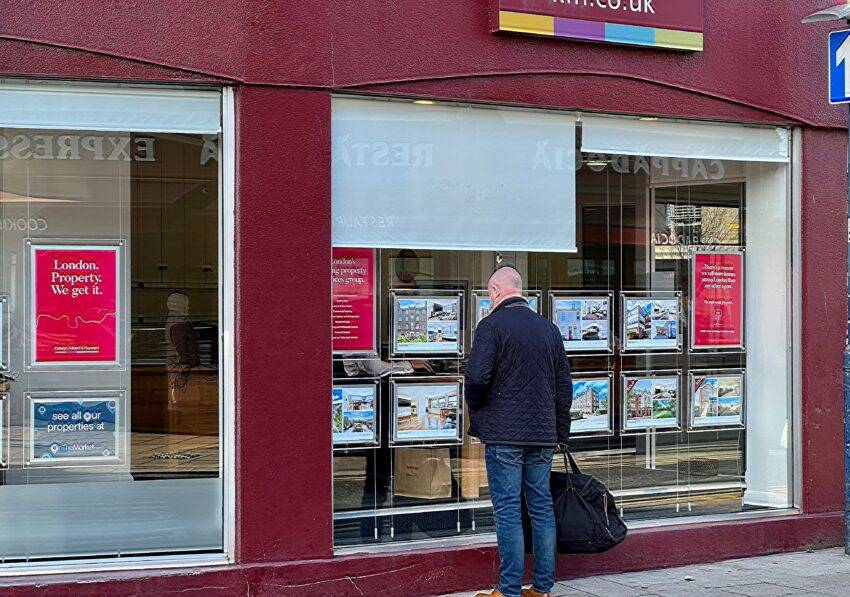Keir Starmer’s reset, rated
POLITICO rates the prime minister's six new "milestones" as he tries to drive change — and turn the polls around.
LONDON — Whisper it, but Keir Starmer’s rebooting his government.
The U.K. prime minister used the biggest speech of his ailing premiership Thursday to set out six “milestones” he wants his top team to hit in order to show voters he really means business.
It comes after a bumpy five months in office — and is aimed at galvanising the sometimes-sluggish government machine to deliver on Brits’ priorities. “This plan will land on desks across Whitehall with that heavy thud of a gauntlet being thrown down,” Starmer said.
POLITICO gave all six milestones the once over to explain what’s being promised — and where the snags might come. Whether anyone is listening to a PM whose personal ratings are in the doldrums is another matter entirely.
1) Higher living standards
Ahead of the election, Starmer said repeatedly that economic growth was Labour’s number one priority. Initially, this was framed through Britain becoming the fastest growing G7 economy.
While that target remains, on Thursday the PM made a subtle but important shift: he’s focusing on raising household disposable income across the country. In other words, Labour wants to make sure Brits can feel it.
The government, the thinking goes, has more control over this measure than it does over how other global economies are faring (though still expect them to claim credit if GDP figures improve.)
Starmer hopes the pound in people’s pocket will shape their economic perception more than abstract GDP figures.
“That’s probably the easiest of them to meet on the basis that the [Office for Budget Responsibility] is already forecasting that disposable incomes will increase,” said Nick Davies, program director at the Institute for Government think tank, which studies how Whitehall works.
The Resolution Foundation, which focuses on low pay in the U.K., said putting this at the center of the government’s mission is welcome, but also warned that improving living standards is the “absolute bare minimum for any functioning government.” Put that on the re-election bumper sticker!

Starmer said the government will work with businesses to help create good jobs. However, his budget in October hiked taxes for employers, which could make them less likely to hire new staff or give higher wages to existing employees.
Achievability rating: 4/5. Despite the volatile economic backdrop, the milestone feels achievable, and specific. The government wants the measures of Real Household Disposable Income and GDP per person rising over the Parliament at both a national and regional level.
2) Make children ‘school-ready’
After a dire time for kids during the pandemic and afterwards, Starmer wants children starting school ready to learn.
There’s a concrete measure here. It’s aiming for 75 percent of 5-year-olds to reach a good level of development according the Early Years Foundation Stage assessment by 2028 — up from 67.7 percent currently.
The government has highlighted that many children are not adequately prepared for starting school, including not being toilet trained or able to dress independently. Addressing this issue is “going to involve much faster increases than we’ve seen, either post-pandemic or in the years leading up to it under the old measure,” warned Davies.
The IfG expert meanwhile suggested that too narrow a focus on early years could take attention away from wider measures to revamp the education system. Labour hopes previous pledges on funding extra childcare and hiring 6,500 new teachers will help the overall picture.
Achievability rating: 3/5. The goal is specific but stretching. Hitting this target is not just about the education system, however — it’ll pull in resources from multiple government departments to tackle a wider social problem.
3) Recruit more cops
More police on the beat is a popular promise governments of all shades tend to make.
Starmer’s one is no different, pledging 13,000 additional police officers, Police Community Support Officers and special constables over the course of the parliament. Each neighborhood will also receive a “named, contactable” officer, he promised.
Like Tony Blair’s government, Starmer wants to appear tough on crime to neutralize traditional attacks from the right.

Achievability rating: 3/5. A named officer in every neighborhood is an ambitious goal, but the Conservatives did manage a big police recruitment push in the last parliament.
4) Build 1.5 million new homes in England
Labour made housebuilding a core part of its agenda, and put this milestone in its manifesto.
Deputy Prime Minister Angela Rayner set out housing targets within weeks of entering office, with a rewrite of the rules paving the way for more housing on low quality green belt land.
Alongside housing are plans to fast-track decisions on at least 150 major economic infrastructure projects. The government believes more housing will offer hard-pressed (and presumably grateful) young voters security. There’s also plenty of demand among Labour MPs to take on NIMBYs.
“This government will not accept this nonsense anymore,” Starmer said regarding “regulators, blockers [and] bureaucrats” who try to stop development.
Nonetheless, the government can expect to face strong local objections from existing residents. The Office for Budget Responsibility watchdog predicted last month that 1.3 million homes will be built across the U.K. over the course of the parliament — 300,000 fewer than were built under the Tories. House-builders themselves are sceptical they can get there, too. However, the OBR’s projections did not take Labour’s planning shake-up into account.
Achievability rating: 2/5. Labour’s will is strong and it’s taking on the objectors. But it might struggle against political reality with a problem that’s bedevilled successive governments.
5) Secure home-grown clean energy
Starmer is also selling his “clean energy” mission, and giving it a patriotic twist.
The goal is for 95 percent of electricity in Britain to be produced by fossil fuel-free sources like wind, solar or nuclear by 2030.

While insisting the target is “exactly what it was in the election” manifesto, the prime minister faced immediate accusations of watering down a key green policy. The Labour manifesto pledged “a zero-carbon electricity system,” which implies 100 percent clean. A Labour missions document from 2023 also used that figure.
Chris Stark, the energy department official tasked with delivering the clean power goal, quickly pointed out that the manifesto included the caveat that some gas power would remain on the system to ensure security of supply. The 2023 missions document contained the same proviso.
A 95 percent clean power target — with gas deployed on days of high power demand or low wind supply — was the advice of the independent National Energy System Operator in a report published in November. The government is now adopting that advice, Energy Secretary Ed Miliband told reporters, adding (for any suspecting a Cabinet split) that he’s happy with it: “Absolutely it’s the right number.”
Achievability rating: 4/5, given the slightly lower target and advice from those running the system.
6) End hospital backlogs
Labour knows voters really do care about the state of Britain’s publicly-funded health service, which has struggled for years with long waiting lists and cancelled appointments.
The government is pledging that, for non-urgent treatment, 92 percent of patients won’t have to wait longer than 18 weeks from their referral to starting consultant-led treatment.
A government-commissioned report by peer Ara Darzi warned the NHS is in a “critical condition” with a massive capital spending shortfall. “Even the NHS [is] losing the trust of the British public,” Starmer warned Thursday. He insisted the target won’t squeeze the NHS elsewhere or prompt standards to slip.
However, Davies from the IfG suggests tackling accident and emergency waiting times may be a more effective way of improving overall hospital performance.
Achievability rating: 2/5. Although Labour allocated more funding to the NHS at the budget, it’s going to be an uphill struggle to turn the service around after years of sliding.
Charlie Cooper contributed to this report.
What's Your Reaction?






































 Bretagne Nord Sotheby's International Realty - Château Costaérès (1).jpg?#)













